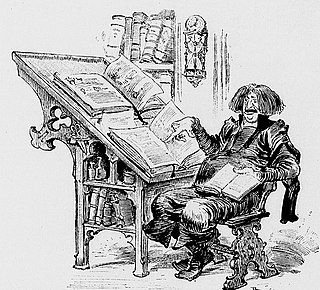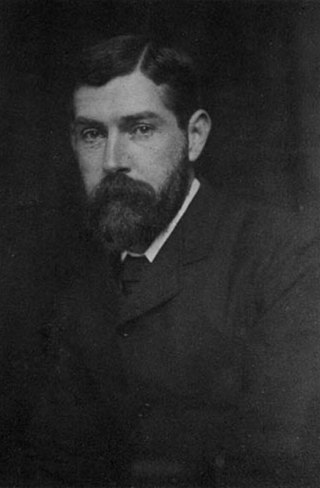
In ethics, casuistry is a process of reasoning that seeks to resolve moral problems by extracting or extending abstract rules from a particular case, and reapplying those rules to new instances. This method occurs in applied ethics and jurisprudence. The term is also commonly used as a pejorative to criticise the use of clever but unsound reasoning, especially in relation to moral questions. It is the "[s]tudy of cases of conscience and a method of solving conflicts of obligations by applying general principles of ethics, religion, and moral theology to particular and concrete cases of human conduct. This frequently demands an extensive knowledge of natural law and equity, civil law, ecclesiastical precepts, and an exceptional skill in interpreting these various norms of conduct." It remains a common tool for applied ethics.

George Edward Moore was an English philosopher, who with Bertrand Russell, Ludwig Wittgenstein and earlier Gottlob Frege was among the initiators of analytic philosophy. He and Russell began deemphasizing the idealism which was then prevalent among British philosophers and became known for advocating common-sense concepts and contributing to ethics, epistemology and metaphysics. He was said to have an "exceptional personality and moral character". Ray Monk later dubbed him "the most revered philosopher of his era".
In philosophical ethics, the naturalistic fallacy is the claim that it is possible to give a reductive explanation of good, in terms of natural properties such as pleasant or desirable. The term was introduced by British philosopher G. E. Moore in his 1903 book Principia Ethica.
Moral realism is the position that ethical sentences express propositions that refer to objective features of the world, some of which may be true to the extent that they report those features accurately. This makes moral realism a non-nihilist form of ethical cognitivism with an ontological orientation, standing in opposition to all forms of moral anti-realism and moral skepticism, including ethical subjectivism, error theory ; and non-cognitivism. Within moral realism, the two main subdivisions are ethical naturalism and ethical non-naturalism.

Analytic philosophy is a branch and tradition of philosophy using analysis, popular in the Western world and particularly the Anglosphere, which began around the turn of the 20th century in the contemporary era in the United Kingdom, United States, Canada, Australia, New Zealand, and Scandinavia, and continues today. Analytic philosophy is often contrasted with continental philosophy, coined as a catch-all term for other methods, prominent in Europe.
In most contexts, the concept of good denotes the conduct that should be preferred when posed with a choice between possible actions. Good is generally considered to be the opposite of evil and is of ethics, morality, philosophy, and religion. The specific meaning and etymology of the term and its associated translations among ancient and contemporary languages show substantial variation in its inflection and meaning, depending on circumstances of place and history, or of philosophical or religious context.

A subset of absolute idealism, British idealism was a philosophical movement that was influential in Britain from the mid-nineteenth century to the early twentieth century. The leading figures in the movement were T. H. Green (1836–1882), F. H. Bradley (1846–1924), and Bernard Bosanquet (1848–1923). They were succeeded by the second generation of J. H. Muirhead (1855–1940), J. M. E. McTaggart (1866–1925), H. H. Joachim (1868–1938), A. E. Taylor (1869–1945), and R. G. Collingwood (1889–1943). The last major figure in the tradition was G. R. G. Mure (1893–1979). Doctrines of early British idealism so provoked the young Cambridge philosophers G. E. Moore and Bertrand Russell that they began a new philosophical tradition, analytic philosophy.
Ethical intuitionism is a view or family of views in moral epistemology. It is foundationalism applied to moral knowledge, the thesis that some moral truths can be known non-inferentially. Such an epistemological view is by definition committed to the existence of knowledge of moral truths; therefore, ethical intuitionism implies cognitivism.

Tom Regan was an American philosopher who specialized in animal rights theory. He was professor emeritus of philosophy at North Carolina State University, where he had taught from 1967 until his retirement in 2001.

Hastings Rashdall was an English philosopher, theologian, historian, and Anglican priest. He expounded a theory known as ideal utilitarianism, and he was a major historian of the universities of the Middle Ages.

Principia Ethica is a book written in 1903 by British philosopher, G. E. Moore. Moore questions a fundamental pillar of ethics, specifically what the definition of "good" is. He concludes that "good" is indefinable because any attempts to do so commit the naturalistic fallacy. Principia Ethica was influential, with Moore's arguments being considered ground-breaking advances in the field of moral philosophy.
The Aristotelian Society for the Systematic Study of Philosophy, more generally known as the Aristotelian Society, is a philosophical society in London.
The axiom of equity was proposed by Samuel Clarke, an English philosopher, in the spirit of the ethic of reciprocity.

British philosophy refers to the philosophical tradition of the British people. "The native characteristics of British philosophy are these: common sense, dislike of complication, a strong preference for the concrete over the abstract and a certain awkward honesty of method in which an occasional pearl of poetry is embedded".
This is a list of articles in contemporary philosophy.
This is a list of articles in analytic philosophy.
Higher good is a "good" that is shared and beneficial for all members of a given community. An example might be an art collector donating their collections to a public museum so all could enjoy the artwork rather than just those privileged enough to see it in private. This is also how the higher good is broadly defined in philosophy, ethics, and political science.

Hasna Begum was a Bangladeshi philosopher and feminist, and a professor of philosophy at the University of Dhaka until her retirement in December 2000.
Ethics is a book about ethics by G. E. Moore first published in 1912. It endorses a version of consequentialism.









